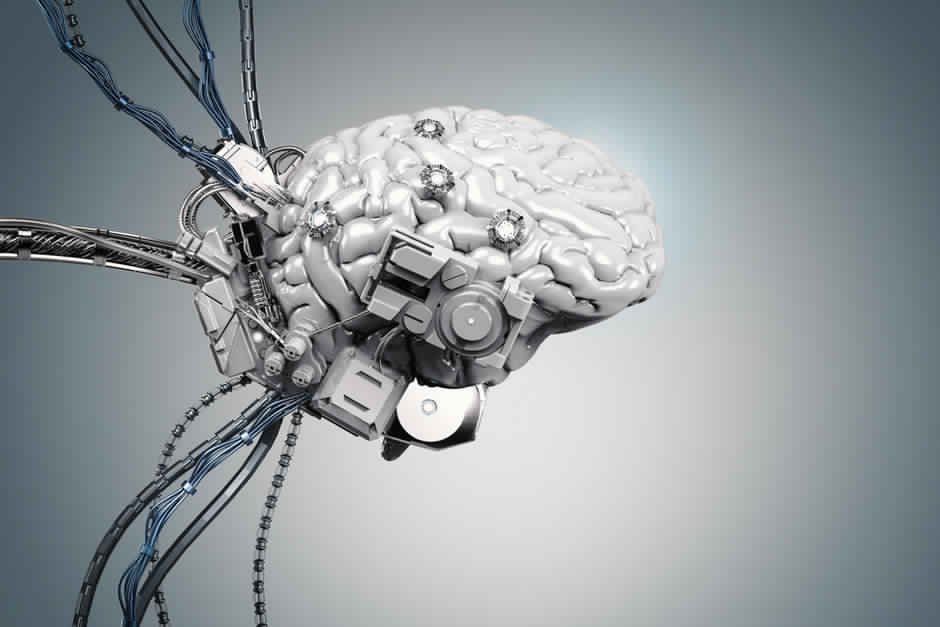Why Elon Musk's Neuralink brain chip will be the end of you
Think twice before getting excited about this ambitious project to rebuild human beings in the image of machines

It'll be just like texting, only without the phone or your fingers
That's what Elon Musk wants you to think when he schemes to wire your brain up with a computer chip.
Is this more of Elon's modern-day P. T. Barnum carnival barking?
No doubt. But he's brought his brand of publicity to an idea that's been simmering around the underground world of transhumanism for decades.
There are a lot of transhumanists out there who spend a lot of time wishing and plotting for the integration of homo sapiens with information processing machines.
Many of these people are now big players in the Silicon Valley panopticon.
The way Elon puts it, we need brain chips to stay competitive with AI. Without that competitive advantage, we natural-born humans risk obsolescence in the coming world of machines. Adapt or be left behind.
It's a clever tale. Too clever by half.
There might be many reasons why implanting a processor in your squishy grey-matter is a bad idea.
This article's going to discuss one of the most important.
The core idea behind Elon Musk's Neuralink brain chip totally misrepresents language and how it works in actual human lives.
This isn't the kind of mistake you fix with more data. It's a conceptual misunderstanding of what words are and what we do with them.
Get that wrong and anybody who got one of these implants would be at risk of ending themselves.
I don't mean physically harming or killing their living animal body.
I'm talking about the death of the self.
An implantee might well survive with a heart beat and brain waves.
But they would no longer be a person.
This will be a short series of three posts. Strap in for part one.
Note: If your first instinct is to shriek "Ackshually" followed by some nerd crap you picked up on Youtube, you are not tall enough for this ride. This is only for people that have curious minds and like to think deeply. Gamma males and other rejects should head back to reddit ASAP.
The modern mythology of the machine mind
Musk hagiographer Tim Urban once wrote a far too long love letter to the brain chip. As unwieldy and juvenile as the piece is, it contains a convenient lay explanation of the myth.
It goes like this...
There's a fully-formed person hanging out in your brain, somewhere, somehow.
You, that person, think thoughts.
You -- the person, or your brain (it's not clear which) -- take words and assemble them into sentences that "tag" your thoughts.
When you speak or write your tagged thoughts, you're transmitting them to other persons, in other brains.
Hearing or reading your words, this other person, hanging out ghost-like in the receiver's brain, translates the thought-tags into its own thoughts.
You speak, others hear and understand.
Words work as tools for human beings to exchange thoughts.
Simple!
Too simple. So simple that we may as well call it one of those modern-day myths that afflicts the unthinking.
Let's look at the many things you must assume true for this to work:
- There is a person, what they used to call a homunculus, hidden away inside your skull. This person is not identical with your brain. They are two distinct things... somehow.
- That person's thoughts exist in its mind, or brain, fully-formed and before any words get involved.
- When a person does learn a word, that word only works to point at an object out in the world, or a thought in the person's mind.
- Speaking or writing in a language is an information channel which people use to transmit thoughts.
The first thing is plain old mythology. You sure can't be a serious materialist and think that this is true. In this context, "person" really stands for "the brain".
But that doesn't work either. You don't solve this problem by talking about the brain the same way you talk about a person, just using different words.
A person thinks, acts, believes, wishes, wants, hopes, and gets angry.
A brain... doesn't do any of that. You ever seen a brain? It looks like a lump of grey cauliflower. Brains don't do any of the things a person does. They share hardly none of the same properties.
Whatever "you" are, it isn't your brain. When you say "I made a sandwich", you aren't talking about what your brain did. You did that.
I know what the skeptics are thinking right now...
But the science says!
It sure doesn't.
The cognitive scientists today who argue that language is nothing but an instrument for exchanging information between minds or brains are largely ignorant of the origins of this idea.
This junk about treating the mind as an information processor came out of the Macy Conferences on cybernetics back in the 1940s.
Some clever guys got the bright idea to explain mental activity as a self-guided machine that works like a terribly complicated thermostat.
Even back then, not everybody was convinced. But the core idea of treating the mind (later, the brain) as a device for doing computations grabbed the imagination of many technically-minded folks.
What's important to know is that...
The "mechanization of the mind" was not a scientific discovery
Not unless you want to say that Thomas Hobbes and John Locke, philosophers writing way back in the seventeenth century, were on the cutting edge of today's sciences of mind.
They came up with it first.
Today's cognitive scientists didn't discover that the mind is an information processor. They assumed that it was and worked their science from that belief.
The reality is not so easy to nail down.
Even some cognitive scientists weren't happy with this direction. Back in the 1960s when Chomsky, Bruner, and Miller kicked off the "cognitive revolution" in psychology, they were reacting against behavioristic theories that treated the mind as a stimulus-response loop.
Jerome Bruner went on to say a lot about how the mind could not explained as a system of rule-governed processes going on inside your brain.
The study of the mind is the study of how we achieve meaning. And this is not a private activity that happens inside your mind, or that guy's mind, or any individual mind.
Instead...
Meaning requires culture
There's a lot of lessons to take from this one small insight.
Here's a teaser: If meaning requires culture, which is interaction between two or more people that takes place in language, you're in for a world of screw-ups if you only focus on what's happening inside a single brain.
And in upcoming posts I'll unpack this idea and show you why it's probably a stupendously bad idea to wire your skull with microprocessors.
Like this article? You'll get to read all the member-only posts if you join us.
Want to leave a comment? You'll need to join us inside the the private rogue planet community.
Members can discuss this article over at the rogue planet zone on SocialLair.

